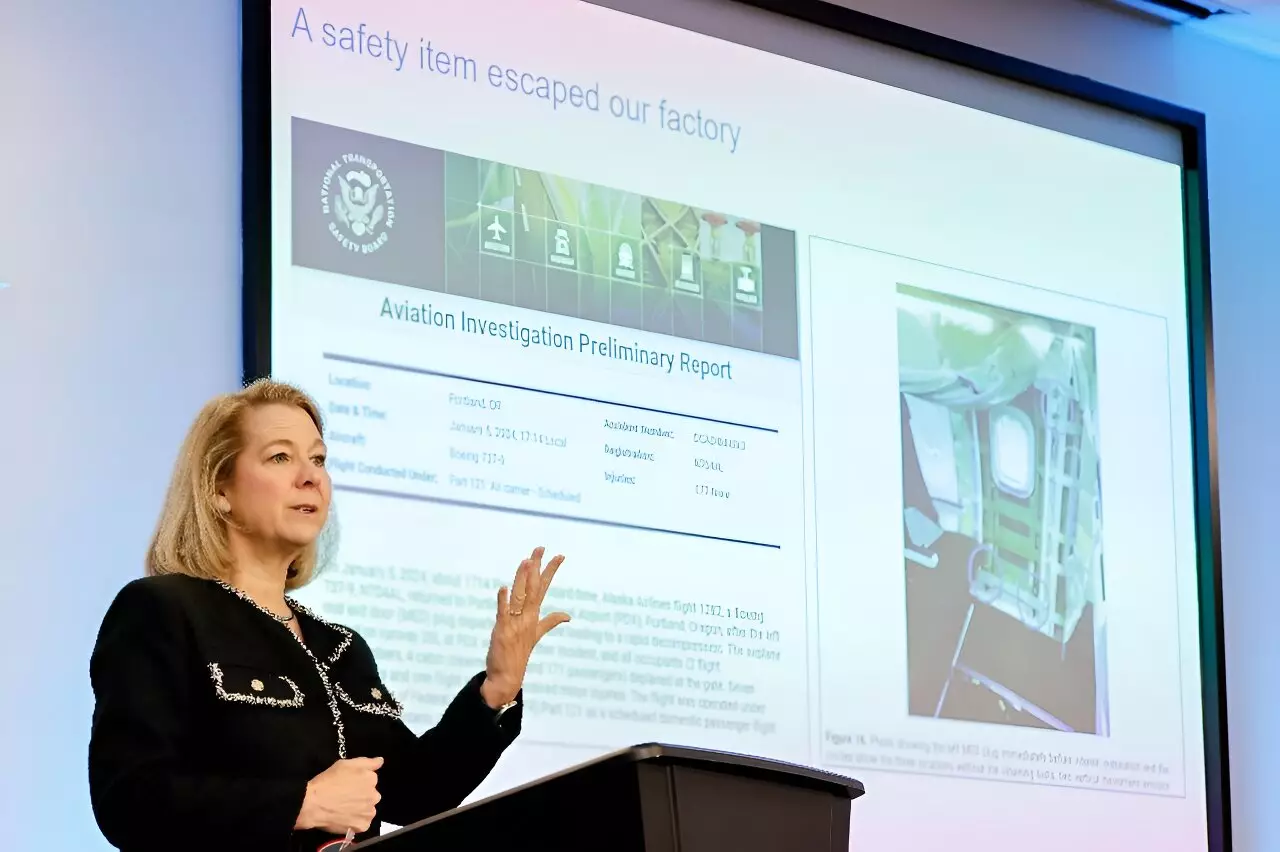Boeing, a major player in the aviation industry, recently found itself in hot water when the National Transportation Safety Board (NTSB) sharply criticized the company for sharing non-public investigative information about a near-catastrophic aviation incident involving an Alaska Airlines flight. The NTSB stated that Boeing violated investigative regulations under a signed agreement, prompting the agency to take serious action against the company.
As a result of Boeing’s actions, the NTSB announced that it would be blocking Boeing from reviewing information gathered in the ongoing investigation. Additionally, Boeing will not be allowed to ask questions of other participants at an upcoming two-day investigative hearing on the case scheduled to be held in early August in Washington. This move signifies the severity of Boeing’s violation of the investigative regulations and the importance of adhering to proper protocol during such probes.
Boeing, upon receiving the rebuke from the NTSB, issued an apology to the agency, acknowledging their mistake and expressing their willingness to cooperate fully with the ongoing investigation. In a statement, Boeing stated that they “stand ready to answer any questions as the agency continues its investigation” and expressed regret for their actions. The company emphasized their commitment to safety and quality in their operations while also acknowledging the misstep in providing non-public investigative information to the media.
During a media briefing held by Boeing earlier this week, concerns were raised about the company’s handling of the situation. Elizabeth Lund, senior vice president for quality at Boeing, made comments that were deemed inappropriate by the NTSB. Lund’s remarks about the missing bolts securing the door plug and the focus on closing a “gap” in documentation raised eyebrows at the NTSB. The agency responded by clarifying that their investigation is centered on determining the probable cause of the accident, not on assigning blame to individuals.
In a significant move, the NTSB revealed that they are coordinating with the Department of Justice (DOJ) regarding Boeing’s unauthorized release of investigative information. The DOJ, which has been closely monitoring Boeing’s actions following two fatal 737 MAX crashes, is expected to announce next steps soon. The NTSB will provide details to the DOJ about Boeing’s recent breaches in relation to the ongoing investigation, potentially leading to further legal repercussions for the company.
The fallout from Boeing’s improper actions in the aviation probe serves as a reminder of the importance of abiding by investigative regulations and cooperating fully with investigative authorities. The incident highlights the need for transparency and accountability in the aviation industry, especially when dealing with potentially serious safety issues. Boeing’s misstep should serve as a cautionary tale for other companies in the industry, emphasizing the consequences of disregarding proper protocol during investigations. Ultimately, the focus should remain on ensuring the safety and well-being of passengers and crews in the aviation sector, with regulatory compliance being paramount.


Leave a Reply